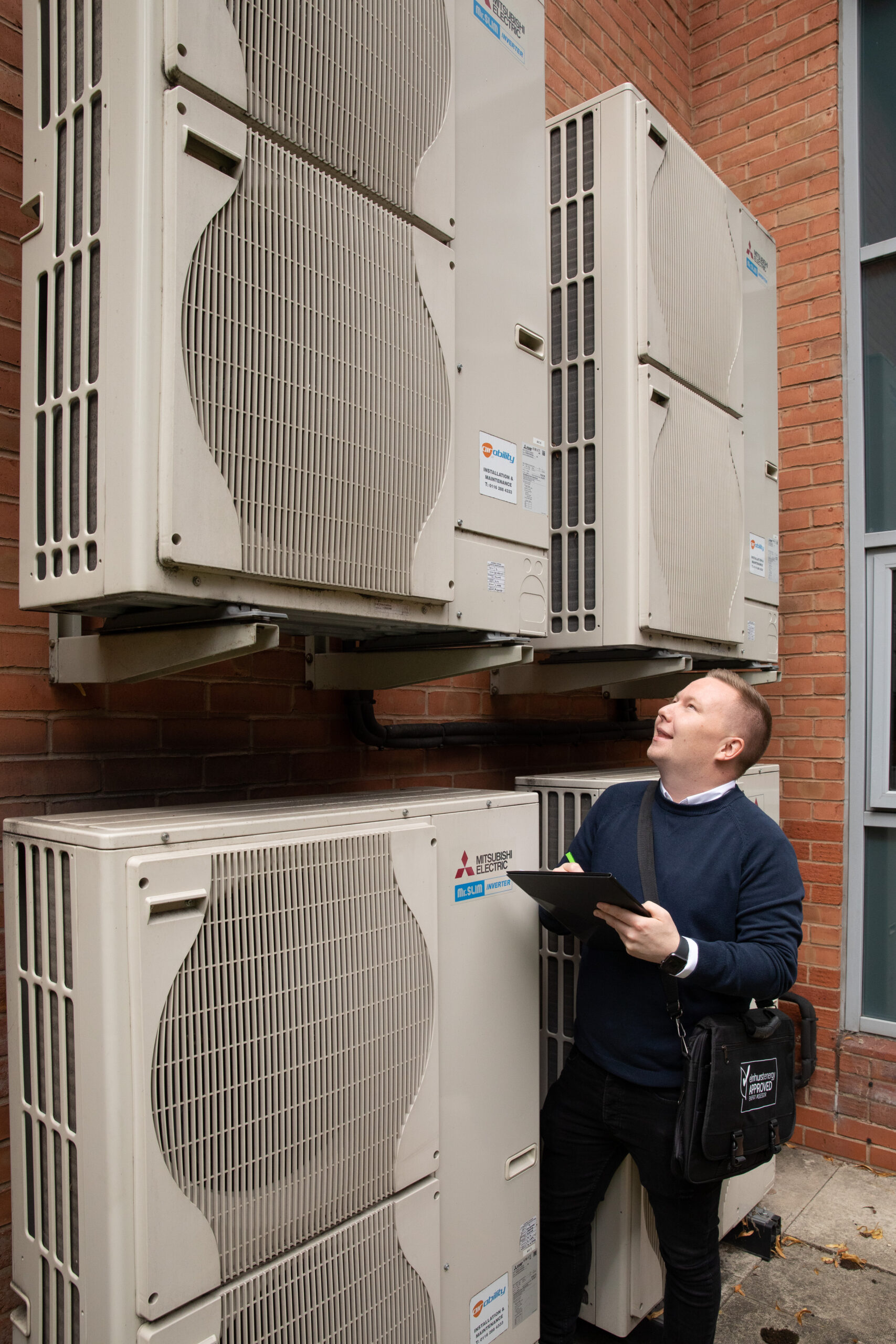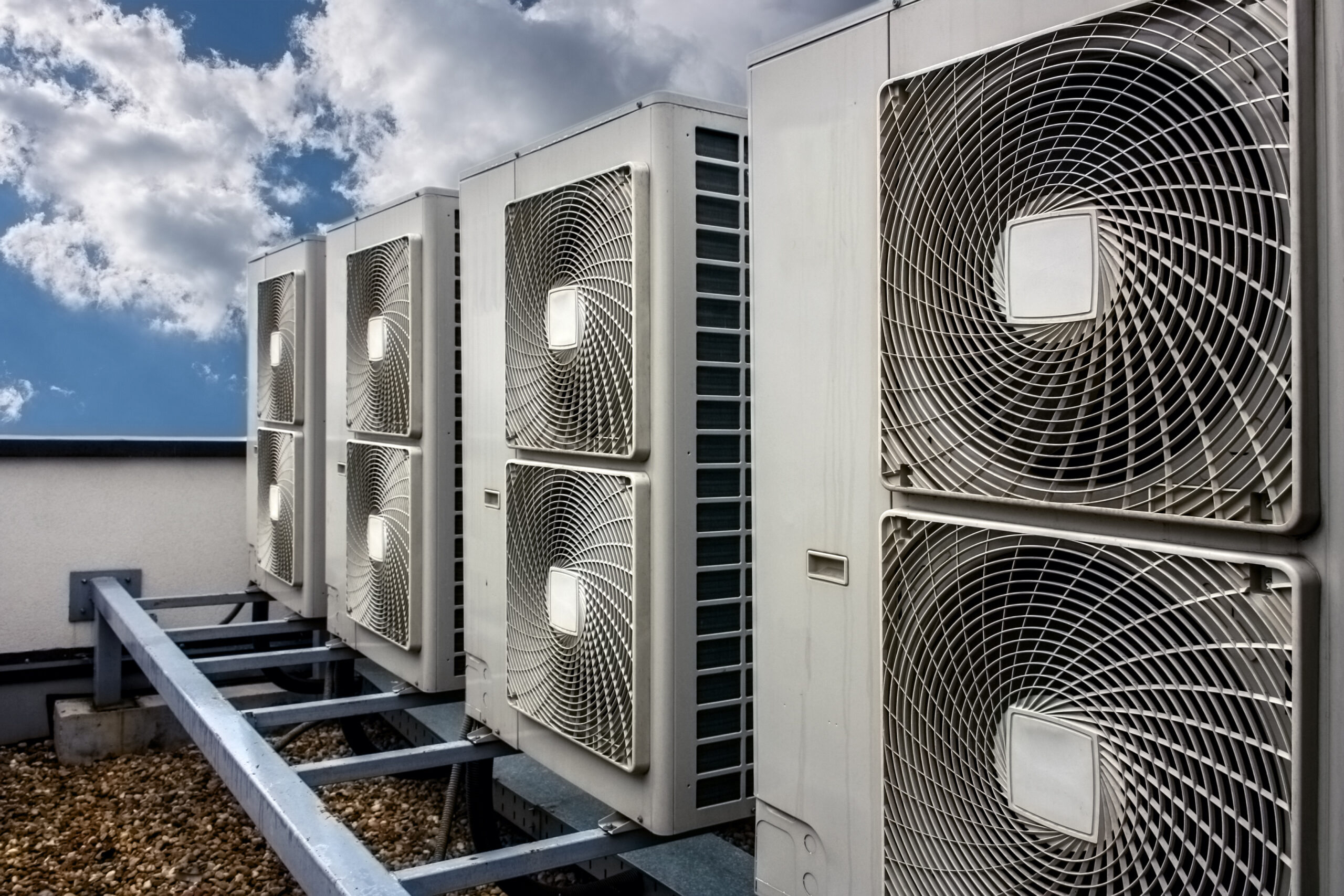An air conditioning system inspection or TM44 inspection by an accredited Air Conditioning Energy Assessor is designed to:
✅ Identify how energy efficient your current equipment is
✅ Recommend improvements
✅ Report any faults and suggest actions
✅ Provide information as to how you can reduce air conditioning use
This is provided as a report which will go some way in helping you to reduce energy consumption, operating costs and carbon emissions.
The energy inspection is an on site visual assessment of an air conditioning system, which also includes an examination of air conditioning equipment and controls.
The energy assessor will highlight how the operation of existing systems can be improved or opportunities to replace older, less energy efficient, or oversized systems, with new energy efficient systems. As the replacement of refrigerant is restricted in older systems (as established in other legislation), there is an additional incentive to improve or replace older systems with more modern energy efficient units.
The person who controls the operation of the system, such as the building owner or manager, is obligated to ensure the proper operation and maintenance of air conditioning systems.
Please note: Inspection, maintenance and cleaning programmes maintain the ability of the system to provide healthy and comfortable environments for building occupants, limiting the escape of refrigerant gases and ensuring the safety of equipment. The practices and procedures needed to achieve these aims should be applied more frequently than the assessment for energy efficiency described on this page.
When are air conditioning inspections required?
All air conditioning systems with an effective rated output of more than 12kW must be inspected every 5 years by an energy assessor to make sure it is energy efficient.
Therefore the first inspection should take place before the air-conditioning is 5 years old, and further inspections should be scheduled every 5 years (or less) thereafter.
FIND AN AIR CONDITIONING INSPECTOR
Only air conditioning systems with an effective rated output of more than 12kW are affected by these regulations. This will include systems consisting of individual units which are less than 12kW, but whose combined effective rated output is more than 12kW.
The person who controls the operation of an air conditioning system must:
- Ensure an inspection has been done in accordance with the requirements and timetable of the regulations
- Keep the most recent air conditioning inspection report
- Give any air conditioning inspection report to any person taking over responsibilities with respect to the control of the air conditioning system
If the control of an air conditioning system is passed to another person and that person has not been given an air conditioning inspection report by the previous operator of the system, the system must be inspected within three months of the new operator taking over control of the system.
The air conditioning inspection report will include at least the following details:
- The likely efficiency of the system and any suggestions for improvement
- Any faults identified during the inspection and suggested actions
- The adequacy of equipment maintenance and any suggestions for improvement
- The adequacy of the installed controls and control settings and any suggestions for improvement
- The current size of the installed system in relation to the cooling load and any suggestions for improvement
- Consideration of the capabilities of the system to optimise its performance under typical operating conditions
- A summary of the findings and the key recommendations
There is no legal requirement to act on the recommendations. However, acting on the advice and key recommendations in the air conditioning inspection report and rectifying faults, or making the appropriate improvements, where this is attractive and cost effective, will contribute to the efficient running of air conditioning systems.
It will also reduce carbon emissions and the operating costs for the building occupants.
The penalty for failing to have an air conditioning inspection report is fixed in the regulations and is currently £300.
Occupiers of a building, where a central air conditioning system is under the control of the building owner or manager, would not be liable for a penalty charge for any breach of the duties.
A further penalty can be issued for failure to provide a Trading Standards Officer with a copy of the air conditioning inspection report within seven days when requested to do so. The penalty is fixed at £200.

